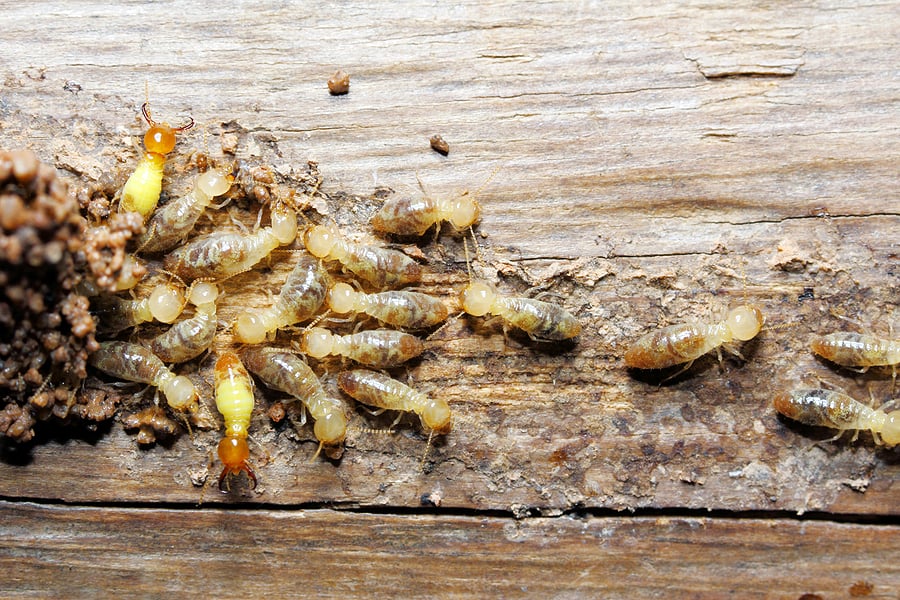Economical Ant Control Solutions: Keep Your Area Ant-Free
Ecological Impact of Insect Control: Balancing Performance With Sustainability
The ecological effect of parasite control is a crucial issue that calls for a delicate balance in between achieving efficiency in managing parasites and ensuring sustainability of our communities. As we make every effort to secure our crops, homes, and wellness from the risks posed by parasites, the techniques we employ can accidentally damage the atmosphere. From the usage of harmful chemicals that leak right into our soil and water to the unintentional consequences on non-target types, the repercussions of traditional pest control techniques are significant. There are arising approaches that supply hope for a much more lasting approach to pest administration. These remedies not only objective to attend to the instant parasite problems yet also think about the lasting health and wellness of our planet.
Harmful Chemicals in Bug Control
The use of unsafe chemicals in parasite control poses significant environmental and health risks that warrant cautious consideration and reduction techniques. Herbicides, chemicals, and pesticides are commonly made use of to eliminate insects, however their extensive application can result in unintentional repercussions. These chemicals can infect dirt, water resources, and the air, impacting not only the targeted parasites yet additionally beneficial pests, wild animals, and humans.

To resolve these risks, integrated pest management (IPM) techniques are being advertised as a much more sustainable alternative. IPM entails a mix of techniques such as organic control, habitat control, and the targeted use pesticides as a last resource (ant control concord nc). By taking on an all natural technique to pest control, we can reduce the environmental and health influences linked with harmful chemicals while properly handling pest populations
Impact on Non-Target Variety
Considering the unplanned repercussions of insect control techniques, the influence on non-target types is an essential facet that calls for complete assessment. While bug control steps intend to target certain insects, various other organisms in the ecological community might be inadvertently influenced. Non-target types, consisting of helpful insects, birds, creatures, and also plants, can suffer indirect or straight damage from chemical applications or biological control approaches.
Pesticides can have deadly or sub-lethal impacts on non-target varieties. For instance, insecticides made to fight a certain insect parasite might hurt pollinators like bees or all-natural killers such as ladybugs. In addition, chemical residues can build up in the atmosphere, impacting non-target microorganisms over time. Biological control representatives, if not species-specific, can posture risks to unexpected targets, disrupting the eco-friendly equilibrium.
To minimize the influence on non-target species, integrated pest management (IPM) methods that stress an all natural approach to pest control are recommended. These approaches focus on making use of ecologically pleasant practices, lessening injury to beneficial organisms while efficiently handling pest populations. Conducting extensive risk assessments and keeping track of the results of parasite control initiatives are necessary action in protecting non-target species and advertising total ecosystem wellness.
Dirt and Water Contamination
Unexpected environmental effects of bug control techniques extend beyond influencing non-target species, with substantial ramifications for dirt and water contamination - ant control services. Pesticides, herbicides, and chemical fertilizers made use of in pest control can seep into the dirt and pollute groundwater, posing a danger to both water and terrestrial ecosystems.
Water contamination is an additional essential concern connected with bug control methods. To alleviate soil and water contamination from pest control activities, integrated pest management techniques that prioritize sustainability and decrease chemical inputs are essential.
Air Pollution From Pesticide Use
Direct exposure to airborne pesticides during farming applications positions a significant worry for air pollution control measures. Furthermore, chemical drift, where pesticides are lugged by the wind to unintentional locations, can lead to the contamination of nearby ecosystems and water bodies.

Methods for Lasting Pest Control
In the world of agricultural practices, carrying out lasting pest control techniques is extremely important for maintaining eco-friendly balance and protecting crop returns. Lasting parasite control emphasizes the use of eco-friendly methods to manage pest populaces properly while decreasing injury to non-target organisms and environments. Integrated Parasite Monitoring (IPM) is an extensively taken on strategy that combines biological, cultural, physical, and chemical control methods to achieve long-term pest management solutions.
One key technique in sustainable pest control is promoting biodiversity within agroecosystems. By enhancing natural enemies of pests, such as predators and parasitoids, farmers can minimize the need for artificial pesticides. Crop turning and diversity are also effective strategies to interfere with pest life cycles and develop much less positive problems for insects to flourish. Additionally, making use of pest-resistant plant varieties and employing techniques like trap chopping can help in reducing click for more bug pressure without relying greatly on chemical treatments. Inevitably, by integrating these sustainable bug control methods, farmers can achieve an equilibrium between pest management performance and ecological stewardship.
Conclusion
In verdict, the environmental effect of pest control techniques must be meticulously considered to stabilize performance with sustainability. Dangerous chemicals used in bug control can bring about soil and water contamination, air pollution, and damage non-target varieties - termite control. It is crucial to execute lasting parasite control techniques to lessen these adverse results on the environment and promote a healthier ecological community for future generations
By adopting a holistic technique to pest control, we can decrease the environmental and health and wellness effects linked with harmful chemicals while efficiently handling pest populaces.

To minimize the air pollution created by pesticide use, it is essential to take on incorporated insect monitoring techniques that focus on the use of non-chemical parasite control techniques, such as crop rotation, natural killers, and resistant crop selections. Sustainable bug control emphasizes the use of eco friendly techniques to manage insect populaces efficiently while decreasing harm to non-target microorganisms and ecosystems. Integrated Bug Monitoring (IPM) is a widely embraced technique that incorporates biological, cultural, physical, and chemical control techniques to attain long-term insect administration remedies.